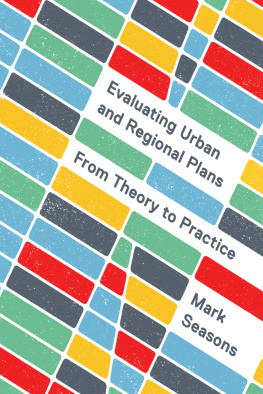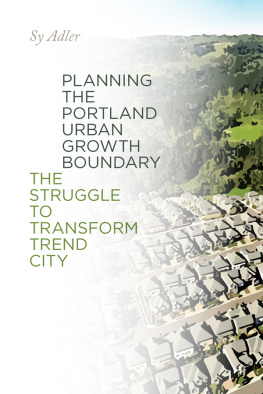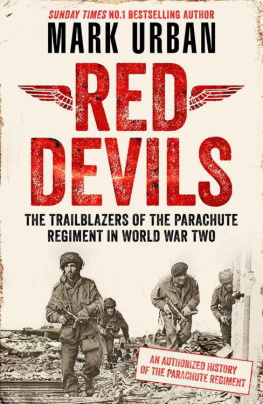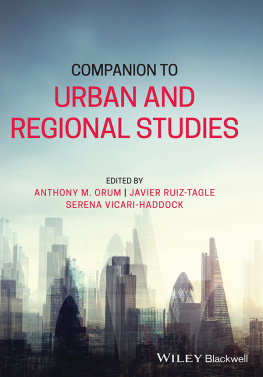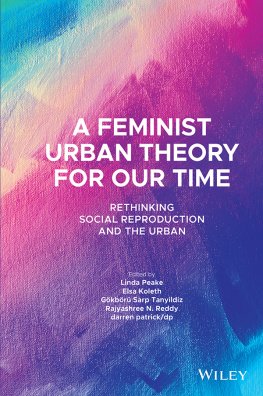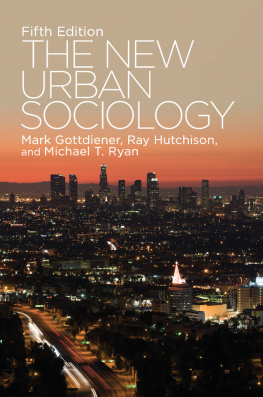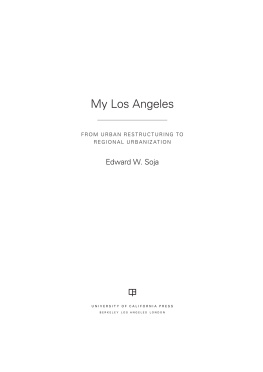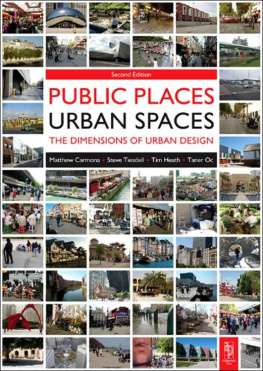ACKNOWLEDGMENTS
Over the course of my career in planning, Ive often thought about whether planners make a difference. Do we help to advance sustainability? Have our plans worked as we anticipated? How would we know? This book is my response to these questions. It represents two decades of contemplation about, and research on, evaluation generally, and plan evaluation specifically.
The focus of this book is the evaluation of comprehensive community plans the over-arching policy documents that guide the long-term evolution of our communities. By providing a reasonable balance of theory and practice advice, my hope is that planning practitioners and students of planning will consider it a useful and relevant resource as they learn about, develop, and apply plan evaluation models.
Evaluating Urban and Regional Plansis very much a team effort. It represents a tremendous amount of effort and expertise by many people. My thanks go to my colleague Dr. Dave Guyadeen who worked with me to develop the initial proposal for the manuscript. The UBC Press editorial and production teams have taken a rather rough manuscript and created a vastly improved product. Many thanks are due to acquiring editor James MacNevin for his enthusiasm, encouragement, and optimism, as well as his advice about the publication process; to my talented copy editor, Camilla Blakeley, for her exceptional and very fine editorial work; and to production editor Holly Keller, who has done a wonderful job pulling the whole thing together. I would also like to acknowledge the anonymous peer reviewers who provided helpful insights and advice that improved the final book so much.
Finally, I want to thank my family, friends, and colleagues, among them planners, engineers, political scientists, designers, artists, and environmentalists, for their encouragement, support, ideas, and patience. I appreciate it very much.
WORKS CITED
- Abbott, J. 2005. Understanding and Managing the Unknown. Journal of Planning Education and Research24, no. 3: 23751.
- Alexander, E.R. 1984. After Rationality, What? A Review of Responses to Paradigm Breakdown. Journal of the American Planning Association50, no. 1: 6269.
- . 1996. After Rationality: Toward a Contingency Theory for Planning. In Explorations in Planning Theory, edited by S.J. Mandelbaum, Luigi Burchell, and R.W. Burchell, 4582. New Brunswick, NJ: Center for Urban Policy Research.
- . 2005. Implementing Norms in Practice: The Institutional Design of Evaluation. In Miller and Patassini 2005, 295310.
- . 2006a. Evolution and Status: Where Is Planning Evaluation Today and How Did It Get Here? In Evaluation in Planning: Evolution and Prospects, edited by E.R. Alexander, 318. Burlington, VT: Ashgate.
- . 2006b. Problems and Prospects: Dilemmas in Evaluation and Directions for the Future. In Evaluation in Planning: Evolution and Prospects, edited by E.R. Alexander, 26776. Burlington, VT: Ashgate.
- . 2009. Dilemmas in Evaluating Planning, or Back to Basics: What Is Planning For? Planning Theory and Practice19, no. 2: 23344.
- . 2010. Introduction: Does Planning Theory Affect Practice, and If So, How? Planning Theory9, no. 2: 99107.
- . 2011. Evaluating Planning: What Is Successful Planning and (How) Can We Measure It? In Evaluation for Participation and Sustainability in Planningedited by A. Hull, E.R. Alexander, A. Khakee, and J. Woltjer, 3246. New York: Routledge.
- Alexander, E.R., and A.

